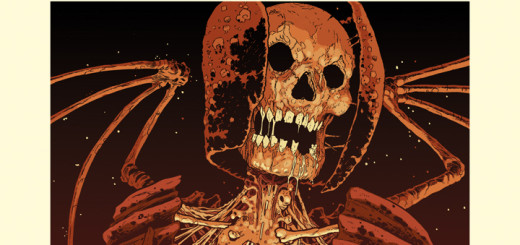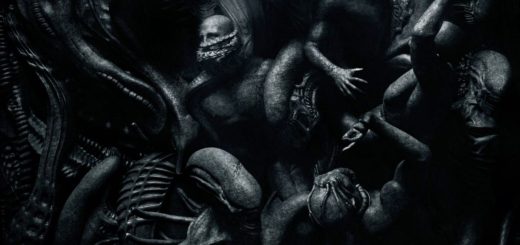FENCES Review
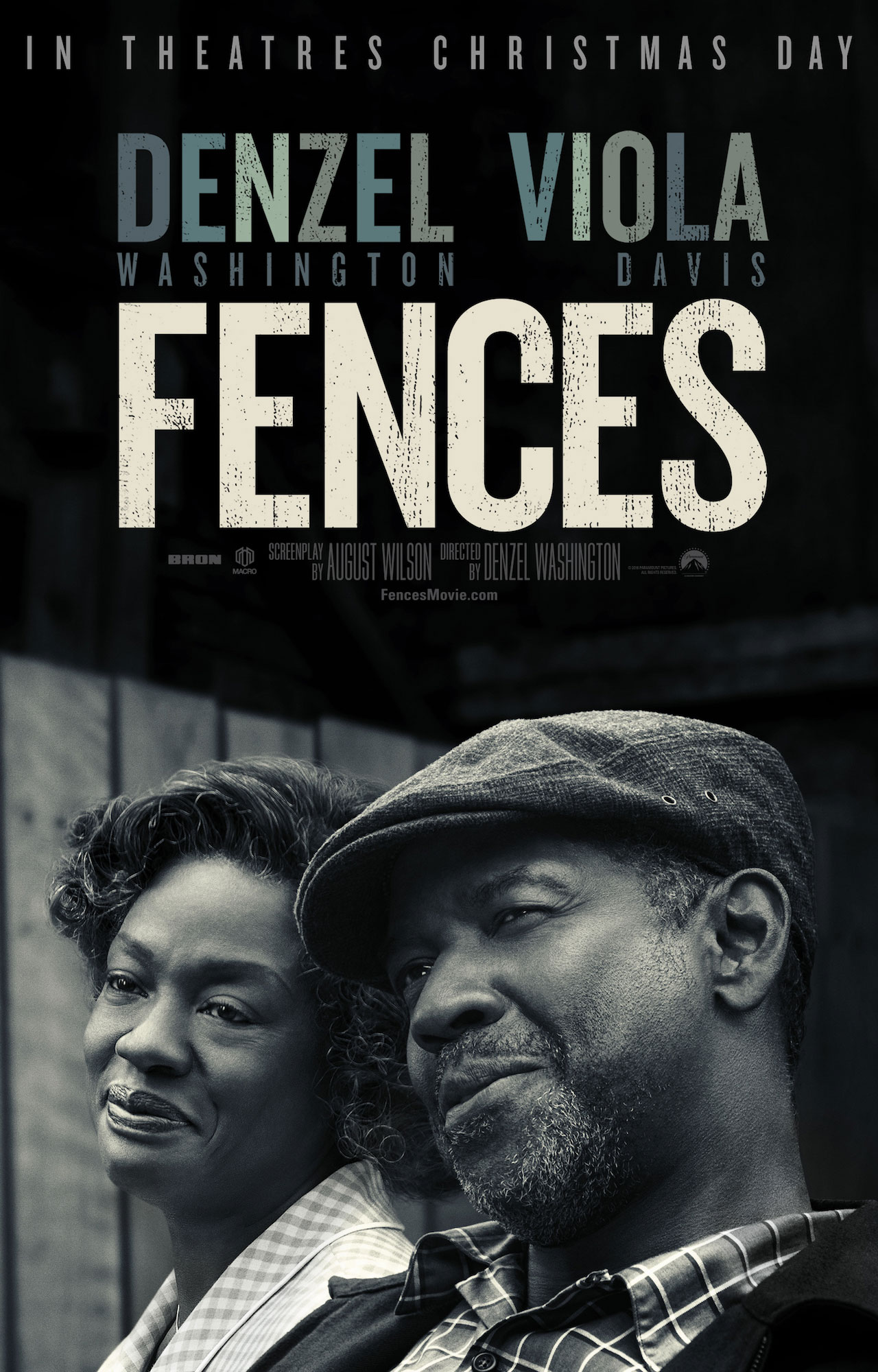
Director: Denzel Washington
Genre: Drama
Year: 2016
FENCES is not a film. Yes, it has producers, yes, it has an award-winning cinematographer (of FAR FROM THE MADDING CROWD fame, interestingly enough), and yes, it’s been released in theaters worldwide. But in terms of literal cinematic entertainment, FENCES falls short. This is an adaptation so aggressively indebted to its theatrical parent medium that it’s almost not worth considering it as such; a mediation would be a more appropriate descriptor. Entirely relegated to the interior, front, and backyard of the house owned by its protagonists Troy (Denzel Washington) and Rose (Viola Davis) Maxson — apart from a handful of miniscule interstitial scenes — it is clear that this is intended to merely be a vehicle for awards consideration on the parts of Washington and Davis. But if recognized and embraced for what it is, FENCES is an unequivocal success.
There is not so much a story to this film as there are characters. Without any doubt, the members of the Maxson family are the most complex and layered fictional denizens of 2016. Troy is a former star player of Negro league baseball, having overcome a difficult childhood of abuse and crime. However, he failed to make the Major Leagues, a decision he believes was made based on the color of his skin. As such, he leads a simple and embittered life working as a trash collector, taking care of his mentally disabled brother Gabe (Mykelti Williamson), and waiting for the Grim Reaper to return for him after he survived a near-fatal case of pneumonia in his childhood. While he is vocal about his love for Rose, he is indifferent at best to his two sons: musician Lyons (Russell Hornsby) and college football hopeful Cory (Jovan Adepo). As a rumored affair between Troy and another woman becomes more readily apparent, the small world Troy holds onto by a thread begins to crumble.
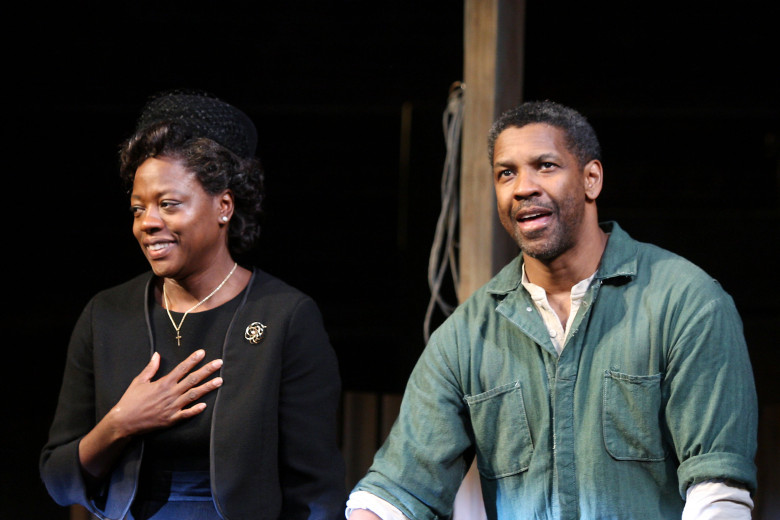
Me critiquing how theatrical it feels as if all the actors didn’t perform the play on Broadway
While other awards-season films this year may have been more formally engaging (LA LA LAND and MANCHESTER BY THE SEA, in particular), this is certainly the more thematically complex. In fact, there might be too much going on here. With Rose, Troy must struggle with the realization that he’s been stuck in the same place for 18 years, going through the motions of love despite the fact that that doesn’t necessarily equate to happiness. With Cory, Troy adamantly insists that a man should stick with his family only out of the societal contract of responsibility, with no obligation to love, or even like, their brood. With Lyons, Troy is constantly faced with the concept that some people live by the seat of their pants in order to pursue something they love, which stands in stark refutation of everything Troy has been conditioned to believe. With Gabe, Troy constantly navigates the guilt he feels at taking Gabe’s government payout, despite the fact that he genuinely loves and cares for him. And that’s all apart from Troy’s own internal struggles with the anger, pain, and sadness he feels after an adolescence and young adulthood of alienation and desperate measures.
FENCES takes the more rare narrative choice of electing to have its protagonist refuse to change, instead using Troy’s reticence to inspire arcs in the rest of the ensemble (there’s a very slight beat of closure for Troy in the final segment, but if you blink you’ll miss it). While Rose, Lyons, and Cory all make their requisite changes, the treatment of Rose is mildly frustrating. With all of Troy’s miserable kvetching about the hand he was dealt, we only get one vague glimpse into the similar issues of frustration Rose experiences, which feels cheap. What’s even more, Rose still loves Troy, and while this makes a small contribution to the consideration of how love and marriage are a complicated compromise, the film is missing a clear-cut moment of empowerment. While Rose does make an ultimatum to Troy towards the end involving leaving him, this is mostly cut down by the period of the setting, where a single black woman in her late middle age would not realistically have many opportunities. As such, virtually everyone will be frustrated that Rose has to stand by her man, and the fact that she seems to mostly forgive Troy by the time the credits roll will leave a sour taste in the mouths of many. But then again, we can argue that that’s exactly the point.
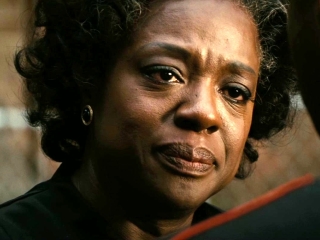
Me @ 2016
In the hands of anyone else other than screenwriter August Wilson (who also penned the original stage play), FENCES would be nearly unwatchable due to the exhaustive explorations of often dour character realizations, especially considering the fact that there are maybe a total of five minutes that do not contain whip-sharp, rapidly fired dialogue. While it never comes close to giving the audience a chance to catch its breath, the characters really have no choice but to be fully fleshed-out when the entire emotional core of the film relies on their relational conversations with each other. Wilson offers a masterclass in subtlety, giving nuance and contour to each character’s internal conflict through superficially unrelated anecdotes and storytelling, only occasionally indulging in monologues; and with Washington and Davis at the helm, they’re often nothing less than devastating. And while the actors certainly play their part in terms of delivery, I can’t think of another movie off the top of my head with such a warm, melodic cadence to its words.
That being said, there are still obvious missteps. Most apparent is that there’s no way around the fact that this is a long-winded effort, occasionally even tiptoeing around the edges of being excessive. While Washington and Davis will deserve any and all awards they receive for their participation, that doesn’t change the fact that FENCES consists of scene after scene intended for Oscar highlight reels, which eventually yields diminishing returns. The most egregious offender is the end, which is at least 30 minutes past the point of good taste, hitting heavy emotional beat after heavy emotional beat until all you can do is wave a white flag. What’s more, the theatrical origin of the film rears its head in how temporally disjointed things feel, with regular week-long jumps (that eventually progress into seasonal jumps) that make it hard to grab onto a cohesive throughline. That same disjointedness carries over to the various conflicts, which are segregated into their own separate scenes; this is a shame, as the standout scene of the film occurs when Gabe interrupts an emotional discussion of Troy’s infidelity.
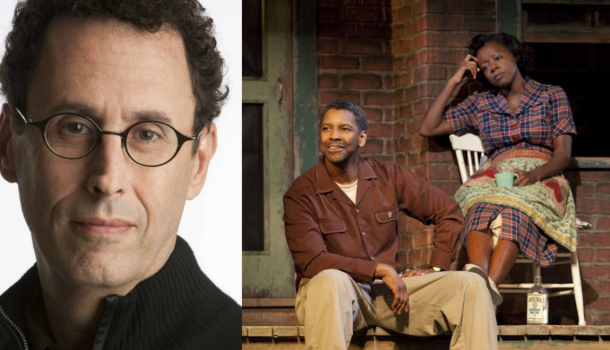
Washington and Davis reacting to the involvement of this white dude with the script
In addition, I’m sorry, but anyone at film school could have both shot and edited this film. There is almost nothing traditionally cinematic about FENCES (not to say that it’s experimental), Washington not even attempting to add a soundtrack except for a scant amount of scenes where its inclusion feels arbitrary. The camerawork continually makes use of static reaction shots at slightly different angles, and the scenes where characters leave the house, while not exactly unwelcome, feel unnecessary and extraneous. Somewhat on that note, Washington’s directorial touch feels comparatively light here. With everyone but Adepo being an accomplished actor, either in theater, film, or television, most of the work seems to have been done in the casting room. While a realistic, flowing, almost improvisatory touch is achieved, considering the verbose screenplay, it’s not clear that the director is the one to credit.
This was constructed for the sole purpose of Washington and Davis reigning supreme, and in that regard, it’s a home run. It’s refreshing to see a film so firmly indebted to the emotions and experiences of people of color, and it’s a pleasant change in 2016 to see white people on screen for less than a minute. While it should practically be considered essential viewing for writers and actors, the average Joe on the street is not going to want to spend their hard-earned cash on FENCES. It’s wordy, visually uninteresting, and really, really long. But for those willing to sink their teeth into a character piece meatier than anything we’ve seen this year, the film yields many rewards.
Verdict: Recommend

